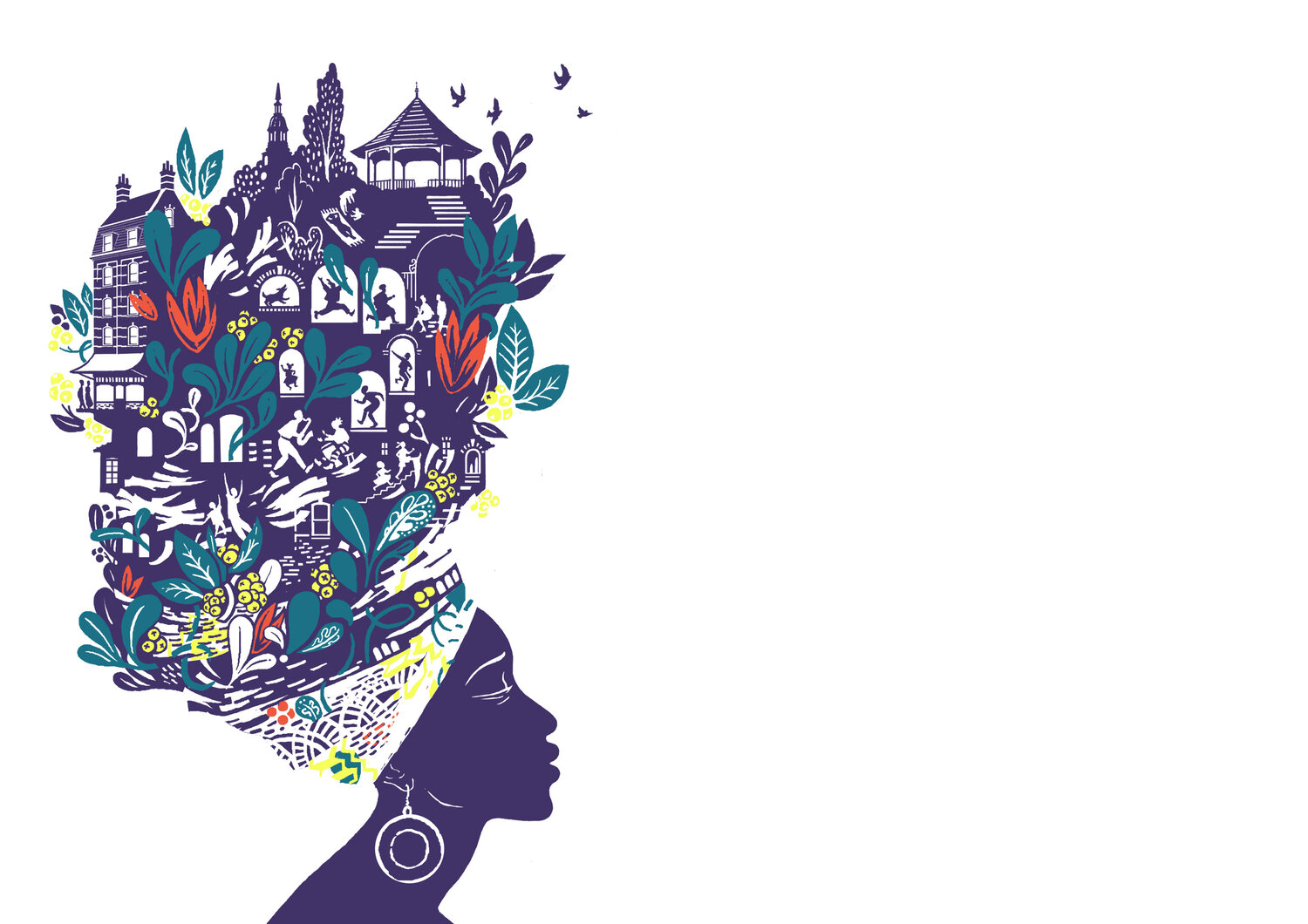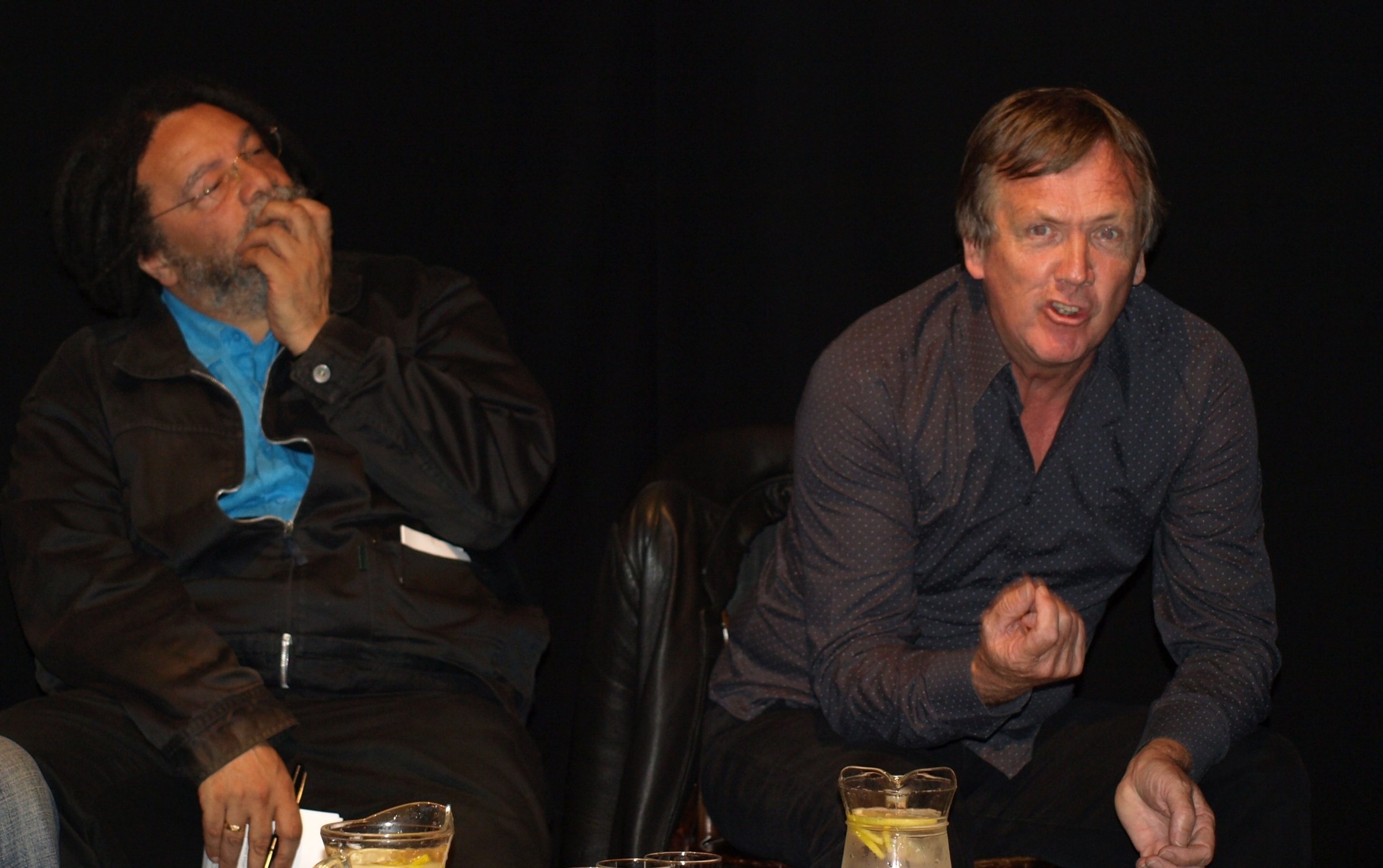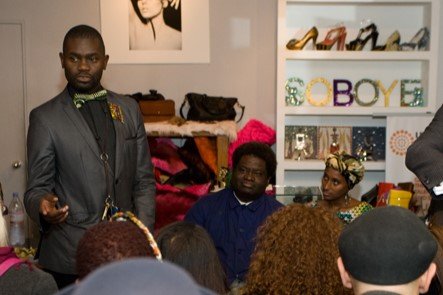African Street Style London is a platform for the presentation of artistic practice from the African diaspora (site undergoing maintenance)
With working associations across academia, artists, architects and historians, we adapt a participatory approach to our work, reflecting our preoccupation in heritage and culture. Where appropriate, we seek to create a civic narrative to deliver our work, applying our interest in exploring how the arts may influence the relationship between people and places.
Current project: PROGRESS: "How will Africa choose to move?"
Continuing our research which commenced in 2018, we will manage a London- Maputo-Johannesburg programme, gathering current assessment and introspection of the experiences and memories from the global diaspora and translate this into an alternative vision for the planning and design of African cities.
A programme of urban interventions connecting young artists from across Europe and Southern Africa, to curate and deliver new material reflecting the social and political legacy of post-colonialism.
Remaining consistent to the approaches to artistic interpretation as seen throughout our ‘Progress 1968’ initaitive, this programme will be presented through concepts set out by aspiring architects and urban design associates, alongside dance, movement, poetry, and installation.

The African Street Style Festival is our defining initiative, a vibrant representation of the underlying objective which runs through our work: to utilise our public spaces to present art from across the african diaspora. An important and in its own way, influential intervention, the African Street Style festival compliments the 'art in public spaces' debate highlighting how art can inform our lifestyle and positively improve the quality of life within our neighbourhoods, town and city centres. The success of the festival is essentially, the stakeholder model, comprising residents, retailers, community-based organisations, places of worship, Police, local authority, working together to re-create spaces that are firmly people focused, inviting and democratic. ASSF re-imagines a busy retail neighbourhood, to create a temporary public provision that brings together the dynamics of the urban space, the informal instincts of human nature and artistic consideration.
ASSF was conceived, curated and delivered by Jeffrey Lennon, an urbanist and regeneration professional who lives and works in London. When after the London Olympics he perceived a real desire from communities to become creatively engaged with their neighbourhoods, Jeffrey had the idea to organise a festival that would take over a historic street in Shoreditch, east London. He went on to mobilise creative practitioners, performers and musicians and local residents and retailers. He secured funding, undertook marketing and obtained licences.
Jeffrey’s background as an urbanist has shaped both conception and programming. The festival invited for participation - rather than mere observation - with both, other people and the urban environment. African Street Style can also be understood as a form of guerrilla urbanism where citizen action pilots alternative ways of shaping our cities and engaging with each other and our urban spaces….’ - excerpt from Londoner’s Making London by Jan Kattein (publication available Spring 2024)
ASSF film credit: Videostefania; Elisa Motta



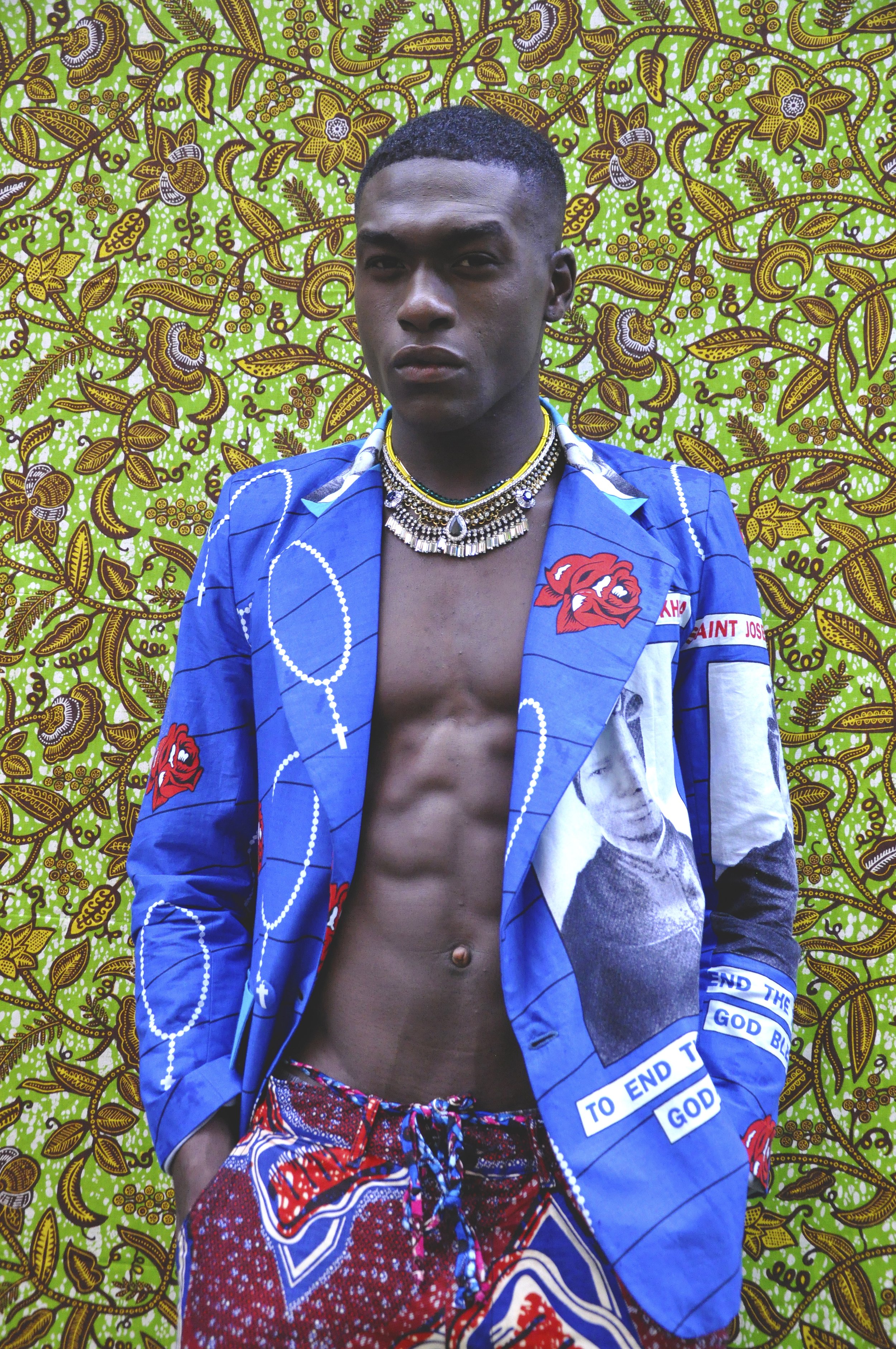

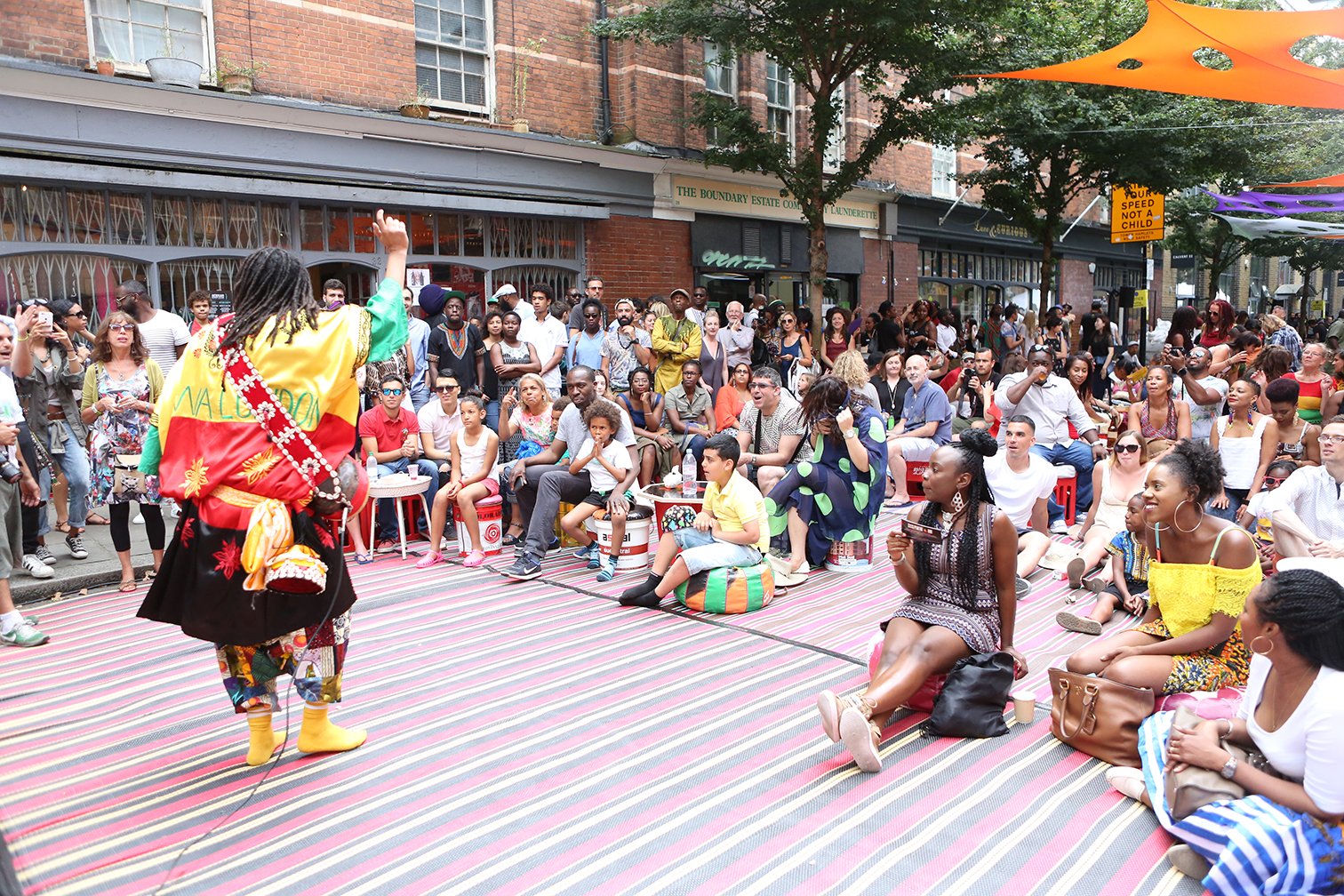


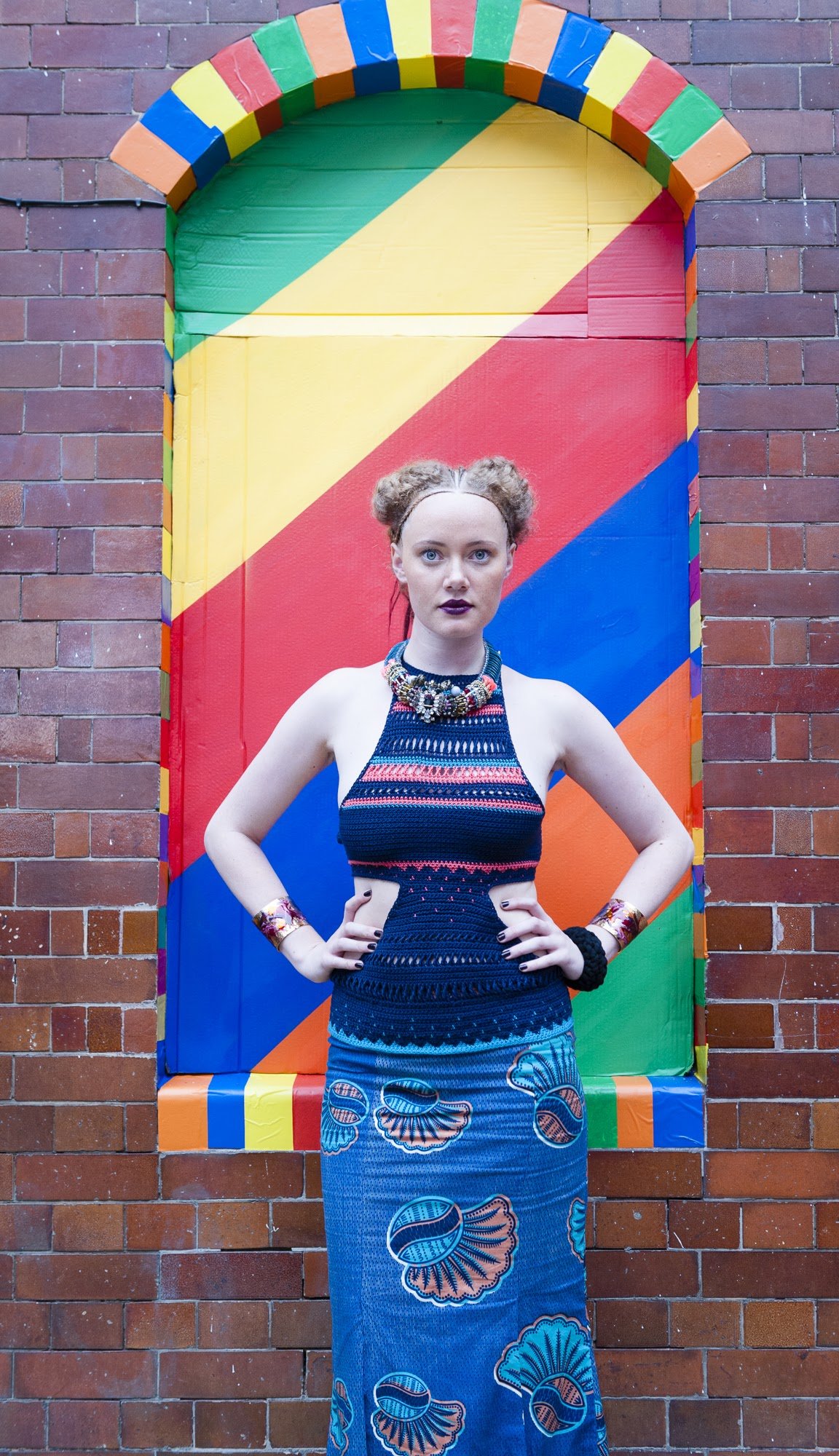


















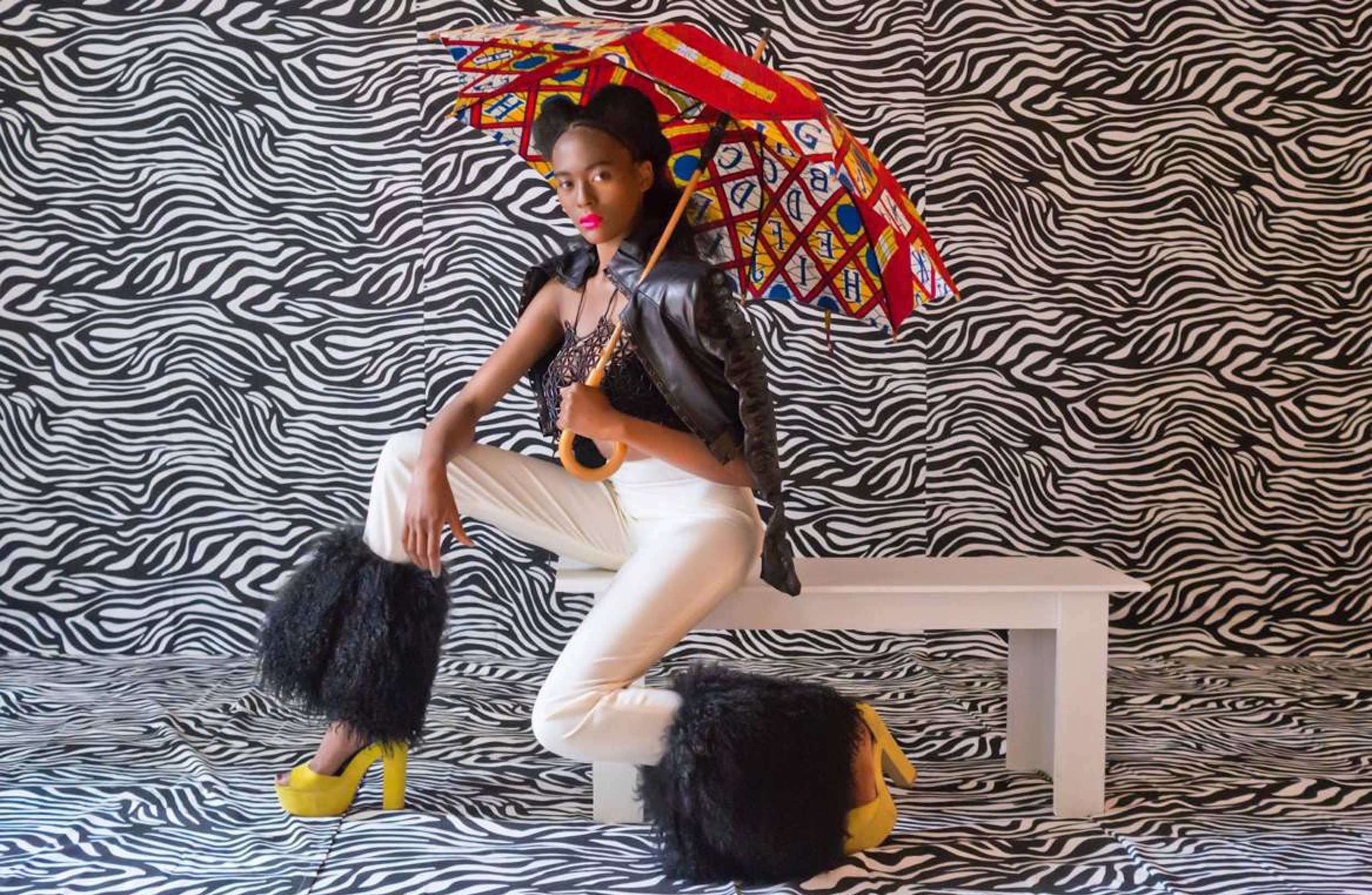




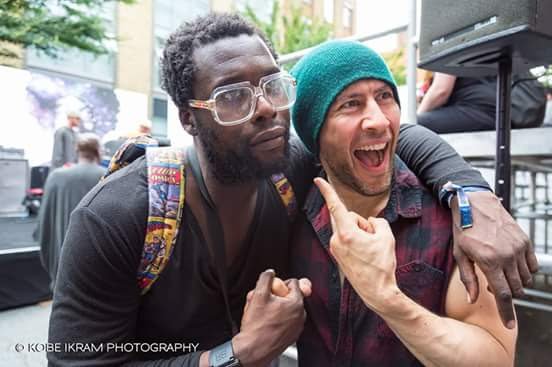



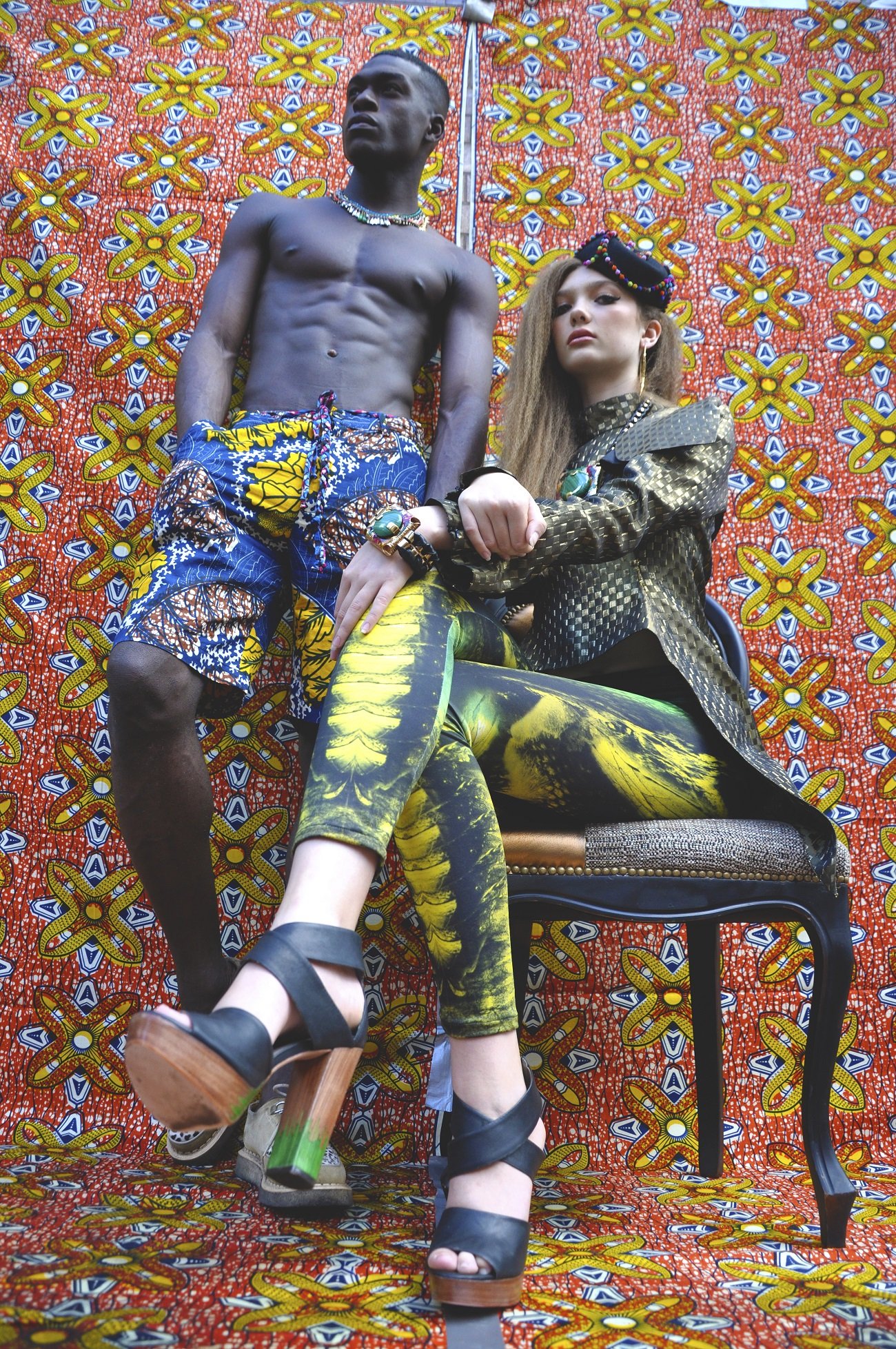








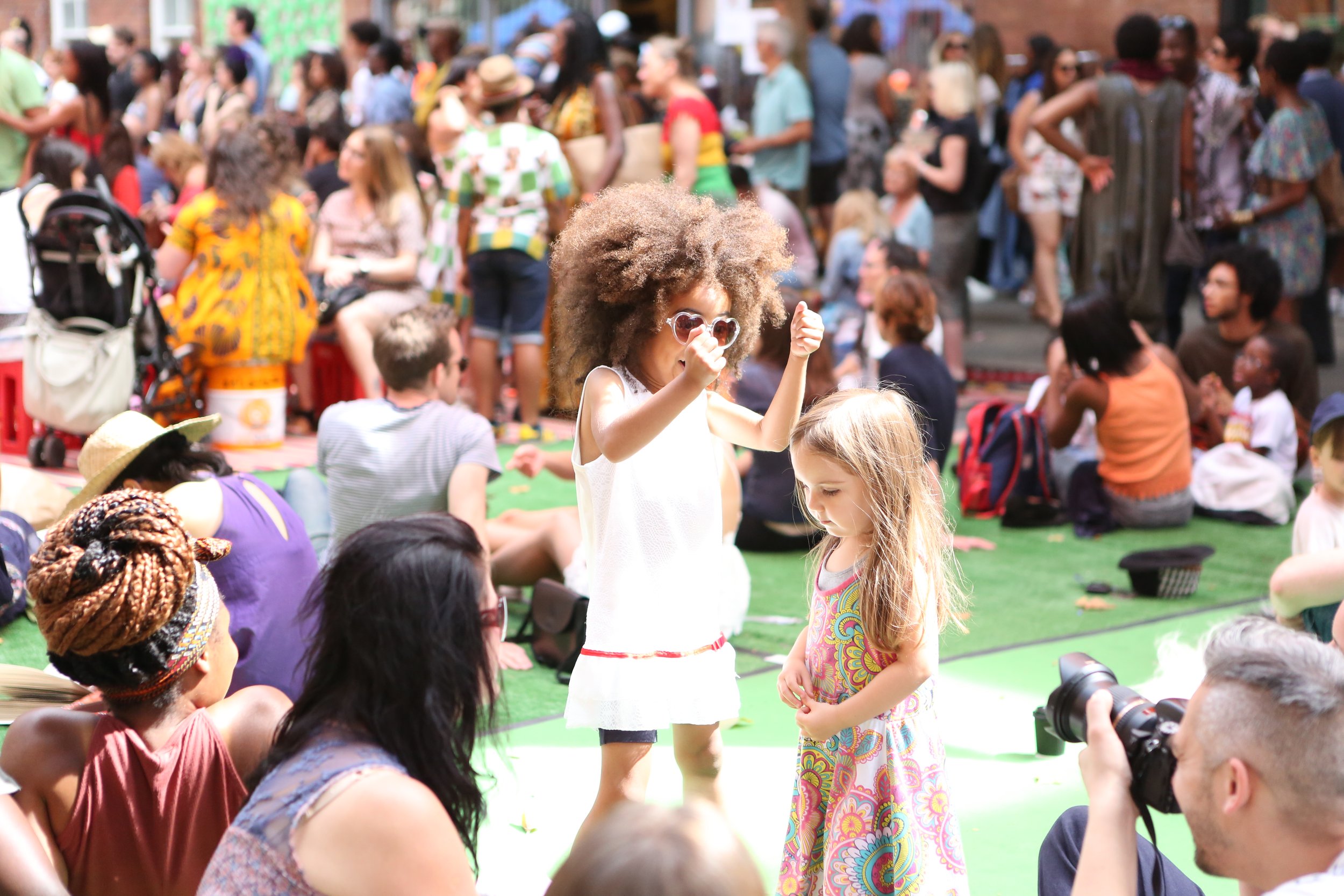

Photo credits: MOLAX productions; Nadum Paul; Hassan Hajjaj; Curtis Benjamin; Simon Fredericks
Fabianna Cozza, ASSF Concert, Shoreditch Church
Bumi Thomas, ASSF Concert, Shoreditch Church

Original African Street Style concept drawing by Anna Mills
Progress 1968: an ASSF production, directed by historian, Dr Etienne Joseph co-founder of ‘Decolonising the Archive’ an initiative that reconsiders the presentation of historical content; and Ada Cotton, of Imigongo Films. ASSF also acted as co-director.
Shortlisted for the Aesthetica Art Prize 2023, Progress 1968 is a multi-faceted project, using 1968 as its reference point to commission artists, academics, and members of the public to create new art interventions which reflect the examination of a period of considerable social and political significance for the African diaspora. This initial phase of the project focused on the experiences across the Biafra region, Rio, Kingston, Guinea-Bissau, in addition to London and Paris, to ensure we present recollections from places that are commonly absent from critical analysis.
We chose to use this film as an opportunity to celebrate both the creativity and beauty of the diaspora, using poetry, movement, and musical compositions to interpret the narrative and collation of archive. For a further insight into the context, influences and perspectives that have informed Progress 1968, you can read our interview with the DarKMatters journal here.
Florence Okoye works across UX Design and web tech, whilst also applying her considerable talents to writing science fiction and curating projects that ‘encourage public engagement with technology and the arts, especially those that explore the intersection of minority experiences…’ As part of our Progress 1968 project, Florence shared her thoughts on the concept of futurism, set within the framework of ‘social technologies’ and the developments of biological sciences.
Access to our Progress 1968 interviews are available on request.
The first phase of the Progress 1968 project was launched with dance and movement workshops and public (visual) arts installation in Windrush Square, Brixton.
The second phase of the programme, ‘Progress2020’, produced a programme of sensitive, considered and new material. Working collaborations in Mozamibique, Germany, Jamaica and Italy have informed this phase.
Progress is an ongoing initiatiative, engaging a global network of associates, tasked with reflecting and contextualising the challenges and preoccupations of both displeasure and resilience that the diaspora have been facing on their journey outside the African continent.
Dece Seck at the Chistro Santa Cristina, Bologna, as part of our PROGRESS2020 programme.
Establishing a partnership consisting of the Universita di Bologna, activist and academic Giulia Grassilli, film-maker Raffaello Pettirouge, and centred on the observations and experiences of Dece Seck, a dancer born and raised in Bologna, we curated an explorative art intervention, presenting responses and interpretations of post-colonialism.
This project interpreted the reflections of Dece’s dual (Italian-Senegalese) heritage through dance, movement and interviews, through the prism of Bologana’s historical places of worship, to create a piece that scrutinises culture, heritage and duality. Click here for link to full film (currently only available in Italian)
Debates
Benjamin Zephaniah was our panel guest alongside Helene Lee (Director) at screening of ‘Le Premier Rasta’.
This interesting film presents the rarely known story of Leonard Howell, who created a self-sustaining community named ‘Pinnacle’, in Jamaica informed by agrarian principles and independent of institutional constraints. The screening was complimented by live music performances, and a set played by Aba-Shanti.
Jazzie B speaks at our ‘Sound System Culture in London’ debate.
We brought together quite a few people for this one… writers (David Katz, Lloyd Bradley), promoters (Nicky Ezer), label owners (John ‘Dub Vendor’ MacGillivray ) sound system representatives from legendary Saxon Sound (Trevor Sax) and Soul II Soul respectively, alongside online music visionary (Martin Stiksel, Last.FM) to both celebrate and interrogate London’s Sound System culture, and assess its role and influence within the current music industry.
Professor Paul Gilroy (‘The Black Atlantic: Modernity and Double Consciousness’) and Robin Denselow (‘When the music’s over: Story of political pop’) at the ‘Sounds of political freedom’ discussion.
A fascinating evening of debate held at the famous King’s Head Theatre in London. Stuart Baker, Founder of Soul Jazz Records also joined the panel to share their thoughts alongside an audience, assessing the historical and current connections between popular music culture and politics.
Samson Soboye was joined by a panel of guests, Art Director Ola Shobowale; Fashion Writer Helen Jennings; and curator, Artistic Director, Hannah Azieb Pool.
We have worked with Samson Soboye for some time and his distinct approach to fashion, informed by his West African heritage has seen us deliver a number of successful collaborations.
Consistent with the wider objectives of African Street Style, we chose to extend the traditional role of the retail experience by hosting this discussion at the SOBOYE outlet in Shoreditch. An enjoyable and informative evening ensued, assessing Africa’s growing influence in fashion and design.
Adriano Olivera at ‘Progress 1968’ dance workshop @ Mountview Performance Academy
Workshops
The tradition of dance and movement play both an informative and important role in the interpretation of culture, heritage.
Our workshops provide an enjoyable, public invitation to actively, artistically experience our programmes of work.
Irineu Nogueira takes our ASSF workshop, @ Siobhan Davis Dance Centre
If you are interested in our work, please contact us by completing the enquiry form. Thanks!
